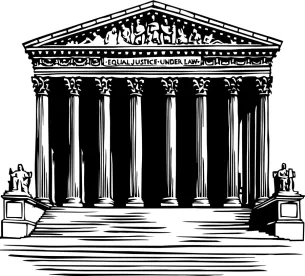Readers of this blog may remember the case of Gilbert Hyatt versus the California Franchise Tax Board. The litigation arose from the FTB's outrageous conduct in auditing Mr. Hyatt after he claimed to have moved to Nevada. See Nevada Supreme Court Upholds Fraud Verdict Against The California Franchise Tax Board. Ultimately, the litigation resulted in three Supreme Court opinions, with the third being issued yesterday.
In Franchise Tax Bd. of Cal. v. Hyatt, 538 U. S. 488 (2003), the Supreme Court held that the Full Faith and Credit Clause of the U.S. Constitution did not prohibit Nevada from applying its own immunity law to Mr. Hyatt's suit in Nevada state court. In the second opinion, the Supreme Court held the Full Faith and Credit Clause required Nevada courts to grant the Board the same immunity that Nevada agencies enjoy. Franchise Tax Bd. of Cal. v. Hyatt, 136 S. Ct. 1277 (2016). In the third decision, the Supreme Court overturned Nevada v. Hall, 440 U. S. 410 (1979) in which it had held the United States Constitution does not bar private suits against a state in the courts of another state.
Court watchers are likely to take especial note of this decision insofar as it reflects that majority's willingness to set aside the principle of stare decisis. Writing for the majority, Justice Thomas said "Stare decisis does not compel continued adherence to this erroneous precedent". In support, he cited the following four factors:
- the quality of the decision’s reasoning;
- its consistency with related decisions;
- legal developments since the decision;
- and reliance on the decision.
He was joined by the four other justices who are commonly described as conservative (Roberts, Alito, Gorsuch and Kavanaugh).
Justice Breyer, joined by Justices Ginsberg, Sotomayor and Kagan, dissented. The penultimate sentence of Justice Breyer's dissent may prove to encapsulate the most important consequence of the majority's decision: "Today’s decision can only cause one to wonder which cases the Court will overrule next."



 />i
/>i

